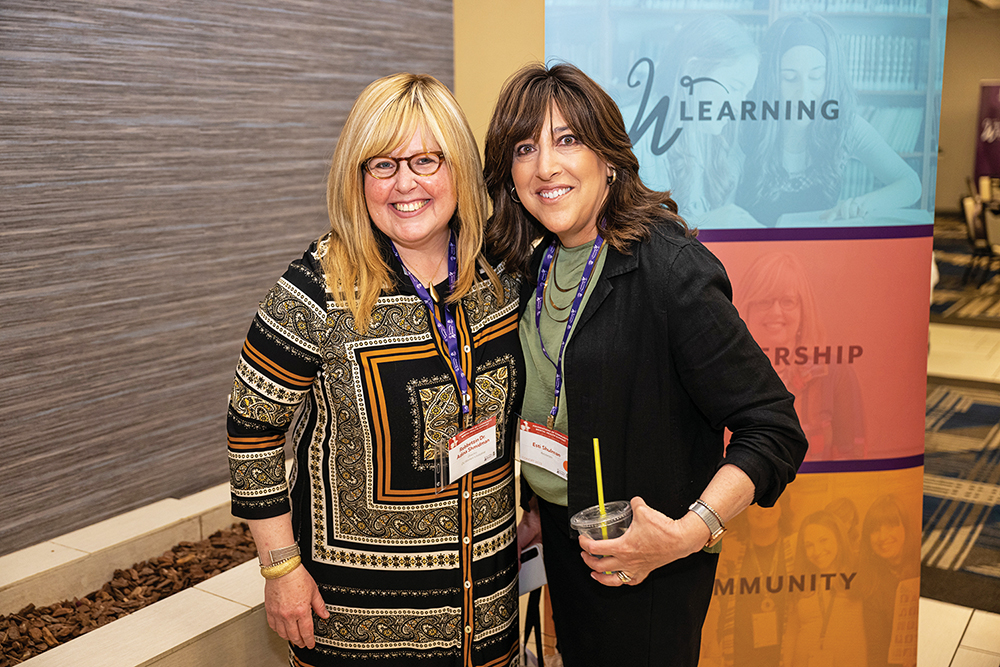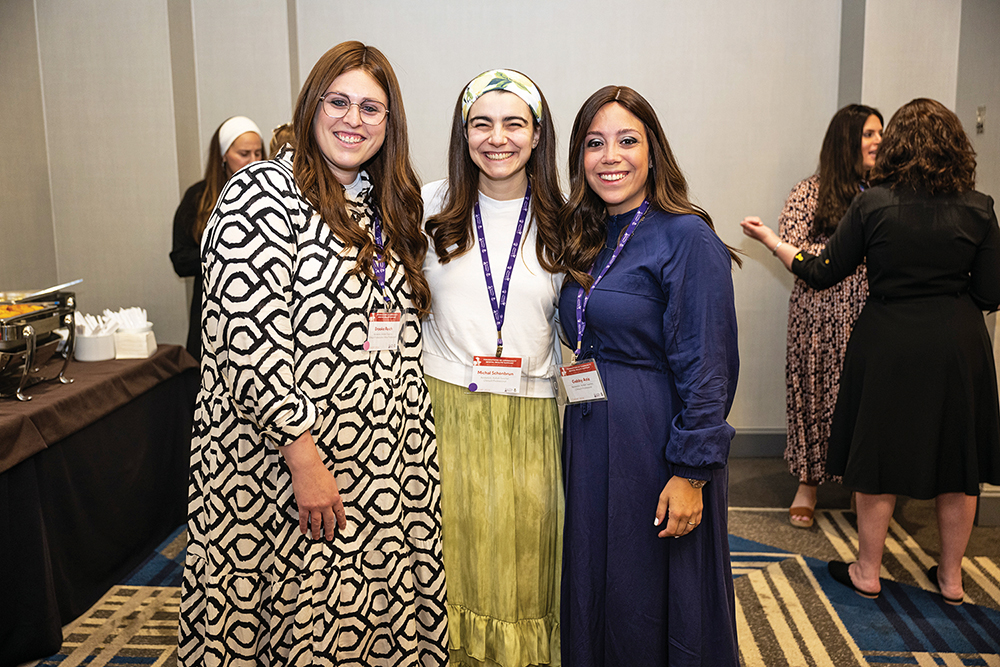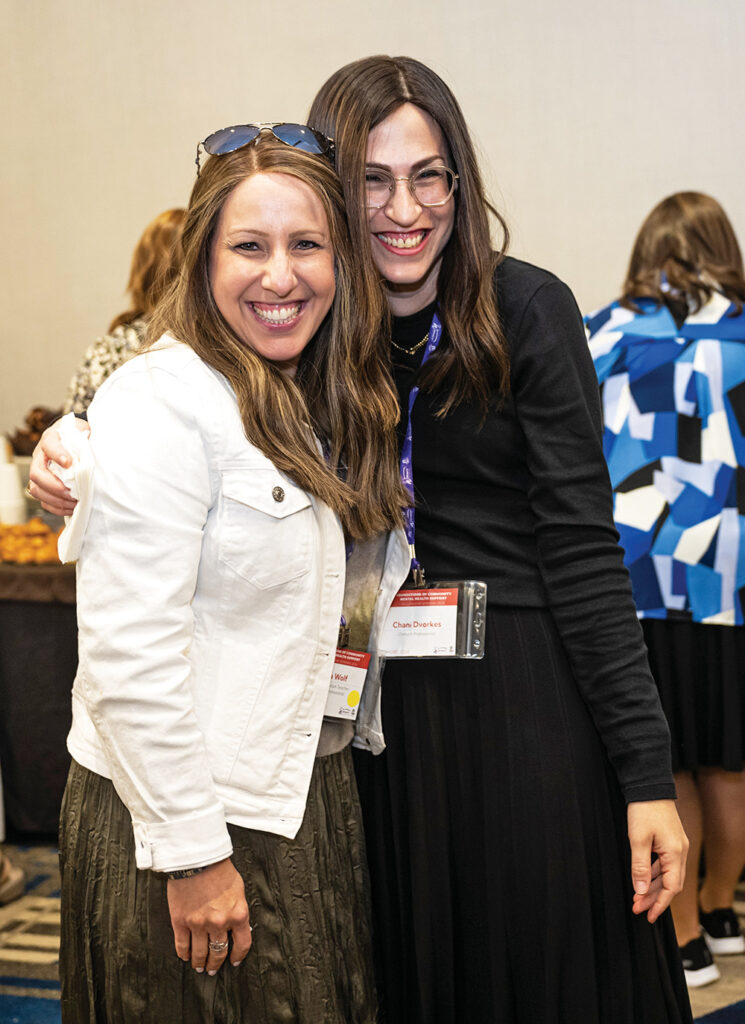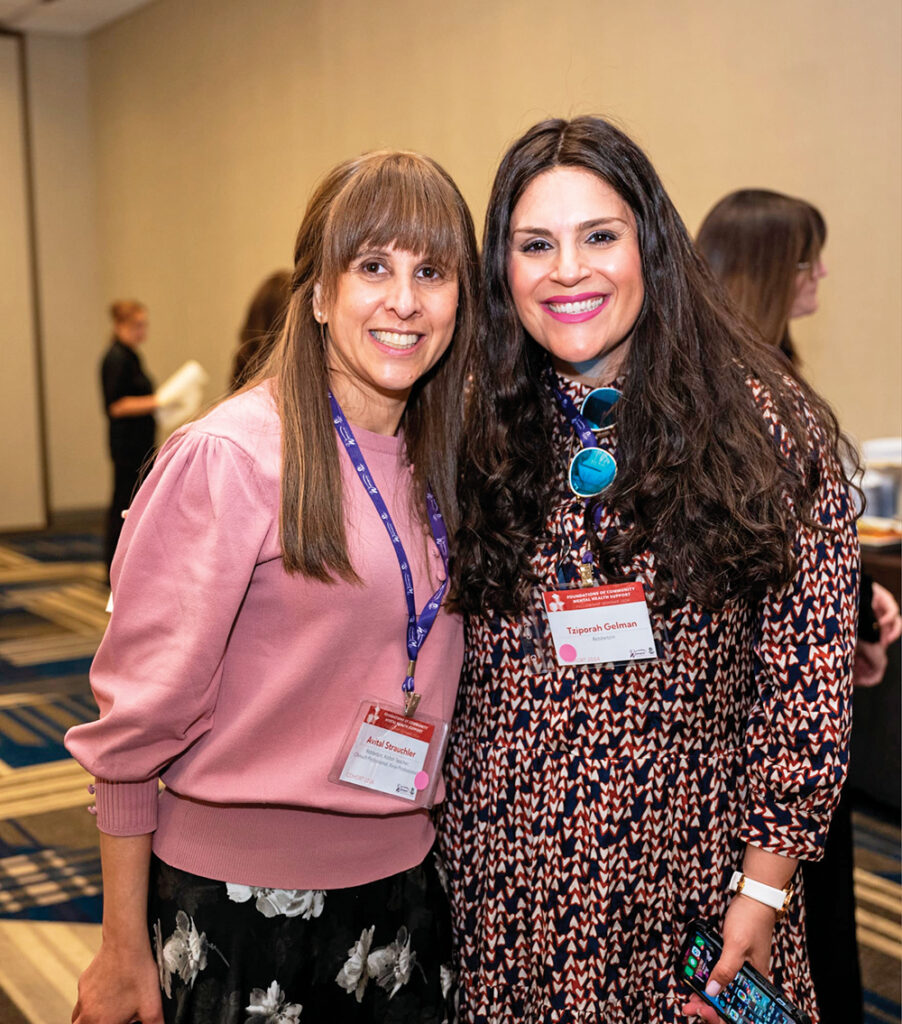
Esti Shulman.
The OU Women’s Initiative recently hosted its third annual mental health seminar, a culmination of eight weeks of learning and discussion for rebbetzins, kallah teachers and professionals in kiruv and chinuch. Through this program, mental health professionals—who are often also community leaders—act as mentors for these women and lead them in weekly sessions on recognizing mental health red flags, supportive listening, understanding diagnoses, and making referrals. The eight-week program concludes with this two-day, in-person conference, with sessions that pull together all the concepts learned throughout the program. The program ensures that these leaders can support their communities effectively.
The program was launched in 2022 to address the challenges that women in communal leadership roles face in the realm of mental health. These women are often the point people when community members are struggling through family and personal crises. The natural inclination of a community leader is to help solve whatever problems arise, but in many of these situations, the solution needs to come from an outside source with professional training in the field. Many of these women are overwhelmed by the problems they face, which is where the seminar comes in.

Beyond the learning, the seminar also creates a sense of community and camaraderie among its participants. Often, community leadership roles are isolating and difficult for non-leaders to understand, but these women come from a mutual understanding of the struggles of leading a community. When the group finally got together at the conference after only meeting virtually for the previous eight weeks, “the energy, warmth and camaraderie were palpable,” said Rebbetzin Dr. Adina Shmidman, director of the OU Women’s Initiative.
Participants are chosen for the cohort by application, so the group is highly curated for diversity and growth. This year’s cohort included 35 women spanning a wide range of locations, hashkafot, ages and specialties. Twenty women from cohorts one and two also returned to participate and continue their learning and growth in this space. According to Adeena Mayerfeld, associate director of the Women’s Initiative, they “often discover that they are more alike than different.”
For a year after the conference, the cohort moves to once-a-month Zoom sessions as opposed to the once-a-week sessions of the seminar. These meetings are an opportunity for the participants to apply the skills they’ve learned and ask questions about how to respond to specific scenarios. Mayerfeld stated that many women call this Zoom session the highlight of their month. Many former participants even return to the conference as former cohort members, not wanting to conclude their involvement with the program.

The sessions on Zoom and during the conference truly give the women a chance to think and reflect, Mayerfeld explained. “They aren’t just gaining information, but perspective and ways to think about the work they are doing and their roles in each of these spaces. It gives them guidance on how to balance their own emotions and the community’s emotions.” Mayerfeld noted that one participant said after the conference that she had to just go home and think, as the conference shifted her perspective so significantly.
Rebbetzin Shmidman shared that at the Women’s Initiative, the group of women involved in the cohort is called ROCK—Rebbetzin, Outreach, Chinuch, Kallah teacher; they are like rocks, the solid foundation of the community. By investing in their leadership, the community is being invested in as well. The atmosphere is very nurturing at the conference, which communicates to these women that the OU appreciates the work they do and encourages them to continue impacting the community.
In addition to sessions and cohort-building time, there are fun, relaxed activities such as arts and crafts and Zumba at the conference. “You don’t have to be self-conscious, we’re all sisters in this,” is the message, according to Rebbetzin Shmidman. At the end of the conference, there was a powerful kumzitz, which she explained showed the women that “we can sit with each other, learn with each other, grow with each other, and move the community forward.”
As opposed to previous years, this year’s conference had a modified focus due to the current trauma the community is facing post-October 7. “Both personally and communally, we experienced trauma. While we created a space for the women to take a break from the ‘noise’ of everyday life; we felt it was important not to disconnect from what is happening in Israel,” said Mayerfeld. Tehillim cards were placed throughout the hotel so that attendees could take a break and daven during the seminar.

In addition, there were sessions specifically tailored to speaking about the trauma of October 7. Esther Marcus, MSW, an Israeli psychologist who runs resilience centers in the South, spoke about her experience surviving the October 7 massacre from her kibbutz in a session called “Struggles and Strength: Life in the Gaza Envelope and Paths to Resilience.” She focused on the split-second, life-or-death decisions that she witnessed, detailing what may have been going through people’s minds and how to understand it. She conveyed the heroism she saw in her community, as well as her own resilience.
Marcus also gave a session for the mentors, entitled “The Frontline of Support: Psychologists’ Experiences and Challenges in Israel,” sharing the struggles that psychologists and mental health professionals are experiencing as they deal with both the community’s immense trauma and their own. This session was a space for mentors to appreciate, understand, and empathize with the helping community in Israel.
Rabbi Moshe Hauer hosted a session called “Antisemitism in America: Challenges and Responsibilities of Community Leaders,” about the importance of supporting America and its values because those values often align with Israel’s. He also focused on the crucial message of ahavat Yisrael: We have to love ourselves and each other more than we expect the world to love us.
There were also options for sessions on topics such as dating and marriage, addressing the problems of antisemitism and the crisis in Israel in school settings, anxiety, confidentiality, and an open conversation about Israel. Some of these sessions were specific to certain cohort members, such as educators or kallah teachers.
Both Rebbetzin Shmidman and Mayerfeld expressed their immense gratitude to the mental health seminar, as well as the honor they feel being in a space that has such a tremendous impact both on the participants and their communities. Mayerfeld said she is “so honored to run these programs because I look around the room and am inspired by the women who come. Every single woman has given a tremendous amount of her time and herself, and has impacted the community in so many ways.” She expressed appreciation for the mentors, who “are deeply invested in the program, personally committed to the participants, and continually finding ways to enhance the program.”
The OU Women’s Initiative’s goal is to discern what women need and how to support them. For more information, visit
ouwomen.org.
Eliana Birman is the assistant digital editor for The Jewish Link. She is beginning her studies at Barnard College in the fall and lives in Teaneck.







